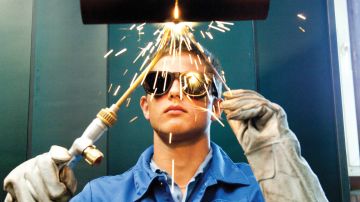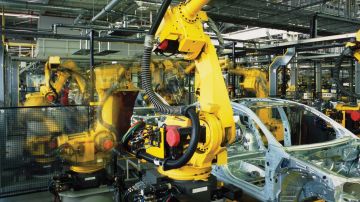INEOS continues to have a significant presence in the UK, with around 4,000 employees across six sites.
The company remains committed to its established manufacturing base but is concerned that the business environment does not support the needs of competitive international business.
Tom Crotty, Director INEOS Group, believes firstly Britain needs a clear, long-term energy policy if it is to stop the rot – and safeguard the future of manufacturing in the UK.
He says short-term thinking has already done significant damage.
“At the moment there is not a lot of joined-up thinking,” he said. “But things need to improve if the UK is to reverse the trend of the past 10 years.”
“Without a sound manufacturing base, the country cannot generate wealth, and without wealth generation, we cannot raise Government spending to maintain our schools and hospitals.”
He said, the countries that had fared best – Germany and Scandinavia – had invested heavily in manufacturing.
Those, which hadn’t – Greece, Spain and Ireland – had foolishly relied upon the service industry instead.
Tom said the British Government and the energy industry needed to develop a coherent industrial policy so that everyone knew which sectors had to be maintained at all costs.
“That’s the most important thing and it is going to be critical,” he said.
“If we have a long-term stable energy policy, industry can deliver against that.”
“At the moment we are lucky if we have policies that survive one term of government.”
Tom also urged successive UK governments to avoid imposing even more regulations – be they home-grown or forced through by the European Union – on an industry already drowning under the sheer weight of legislation.
He said the Germans and French had got it right.
“They interpret EU regulations differently to us,” he said. “They impose the regulations in a way that they protect their industries.”
“I think we need to examine the impact of all EU regulation on our industry before blindly implementing it.”
Between 1997 and 2007 the UK’s manufacturing industry as a percentage of GDP effectively halved, falling from 22% to 11%.
Germany’s – on the other hand – has barely been affected and about 50% of its energy still comes from coal.
During a recent dinner with the UK Government’s Business Secretary Vince Cable, Tom was asked what one thing the Coalition Government could do to help Britain’s manufacturing industry.
“I suggested a time machine so we could go back 20 years,” he said.
But Tom believes the mood may be changing.
“I think the downturn showed up sharply what needs to be done,” he said.

















